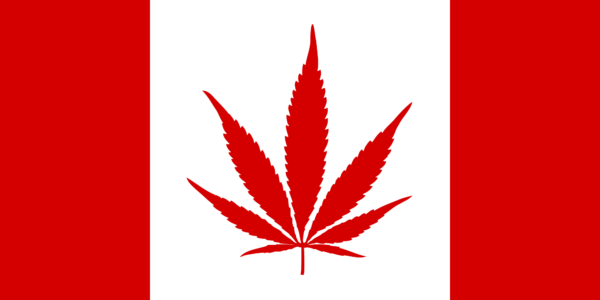

In April 2017, the Government of Canada introduced Bill C-45, the Cannabis Act, to legalize, strictly regulate and restrict access to cannabis. On June 21, 2018, the Cannabis Act received Royal Assent. This marks an important step in the process of legalizing and regulating cannabis in Canada. For more information, visit Health Canada’s Cannabis page.
Royal Assent does not equal legalization. Until October 17, 2018, it remains illegal to buy, possess or use cannabis in Canada for anything other than authorized medical or research purposes.
Entering Canada
Under the Cannabis Act, the legalization of cannabis in Canada will not change Canada’s border rules. Taking cannabis or any product containing cannabis into Canada will remain illegal and can result in serious criminal penalties both at home and abroad.
This will be the case even if you are travelling from places that have legalized or decriminalized cannabis. Transporting cannabis used for medical purposes will also remain illegal.
Travellers entering Canada can contribute to a smooth border crossing by understanding and complying with their obligations at the Canadian border.
It is illegal to bring cannabis into Canada. If you do have cannabis or products containing cannabis with you when you enter Canada, you must declare them to the Canada Border Services Agency. If you do not declare cannabis products when you enter Canada, you can face enforcement action, including arrest and prosecution.
Taking cannabis across the border is and will remain illegal .
Leaving Canada
Under the Cannabis Act, the legalization of cannabis in Canada will not change Canada’s border rules. Taking cannabis or any product containing cannabis across Canada’s international borders will remain illegal and can result in serious criminal penalties both at home and abroad.
This will be the case even if you are travelling to places that have legalized or decriminalized cannabis. Transporting cannabis used for medical purposes will also remain illegal.
Cannabis is illegal in most countries. Previous use of cannabis, or any other substance prohibited by local law, could result in a traveller being denied entry to their destination country.
Each country or territory decides who can enter or exit through its borders. The Government of Canada cannot intervene on your behalf if you do not meet your destination’s entry or exit requirements. Involvement in the legal cannabis industry in Canada could also result in your being denied entry.
Travellers are responsible for learning about the laws of the countries they intend to visit. See our Travel Advice and Advisories for information on your destination.
Travellers to the United States
Although the possession of cannabis is legal in some U.S. states, it remains illegal under U.S. federal laws in any form and quantity, making it illegal to bring across the Canada-U.S. border.
Previous use of cannabis, or any substance prohibited by U.S. federal laws, could mean that you are denied entry to the U.S. Involvement in the legal cannabis industry in Canada could also result in your being denied entry.
Even after cannabis is legalized in Canada, do not attempt to cross the Canada-U.S. border with any amount of cannabis in any form, even if you are traveling to a U.S. state that has legalized possession of cannabis. If you do so you can expect legal prosecution and fines, and possibly jail time.
Source: Government of Canada
more recommended stories
 Fentanyl Seizures at Border Continue to Spike, Making San Diego a National Epicenter for Fentanyl Trafficking
Fentanyl Seizures at Border Continue to Spike, Making San Diego a National Epicenter for Fentanyl TraffickingFentanyl Seizures at Border Continue to.
 Utah Man Sentenced for Hate Crime Attack of Three Men
Utah Man Sentenced for Hate Crime Attack of Three MenTuesday, August 8, 2023 A.
 Green Energy Company Biden Hosted At White House Files For Bankruptcy
Green Energy Company Biden Hosted At White House Files For BankruptcyAug 7 (Reuters) – Electric-vehicle parts.
 Former ABC News Reporter Who “Debunked” Pizzagate Pleads Guilty of Possessing Child pδrn
Former ABC News Reporter Who “Debunked” Pizzagate Pleads Guilty of Possessing Child pδrnFriday, July 21, 2023 A former.
 Six Harvard Medical School and an Arkansas mortuary Charged With Trafficking In Stolen Human Remains
Six Harvard Medical School and an Arkansas mortuary Charged With Trafficking In Stolen Human RemainsSCRANTON – The United States.
 Over 300 People Facing Federal Charges For Crimes Committed During Nationwide Demonstrations
Over 300 People Facing Federal Charges For Crimes Committed During Nationwide DemonstrationsThe Department of Justice announced that.
